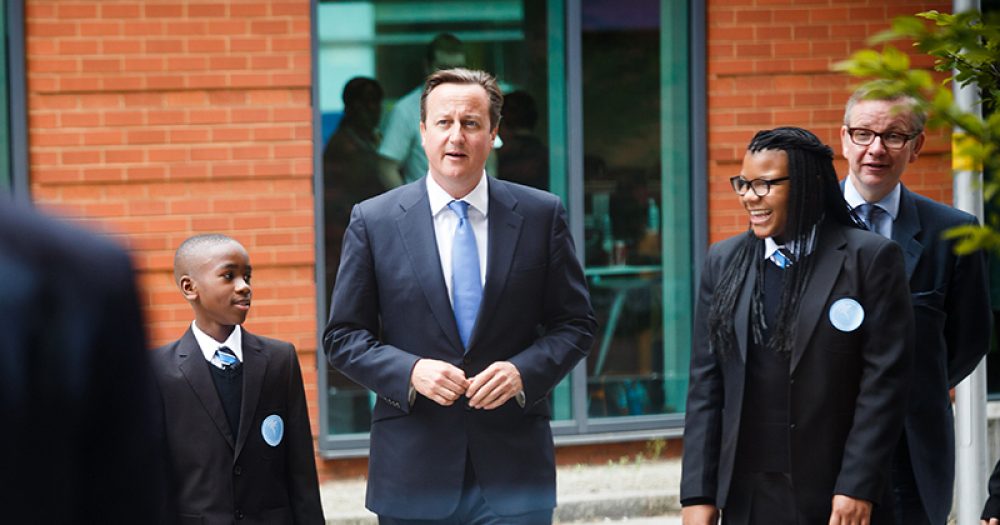The controversial Perry Beeches academy trust had a £1.5 million deficit in the year before it was wound up, it has been revealed.
According to its latest accounts, the now-defunct Birmingham trust managed to reduce the deficit across its schools from £2.5 million in August 2016, but still had a £1.5 million shortfall last summer.
Much of the deficit related to Perry Beeches The Academy, which was in deficit by over £1.1 million. Perry Beeches III The Free School had a £621,000 deficit, while Perry Beeches V The All Through School had a deficit of £472,000.
Perry Beeches II and IV had surpluses of £313,000 and £30,000 respectively, while the trust’s central office had a surplus of £392,000.
These balances were not handed to the schools’ new sponsors when they transferred earlier this year, and it is not known whether the Department for Education will try to claw back the funds or simply write them off.
The trust’s accounts for the year ending August 2017 have only just been published on Companies House, months after the December 31 deadline for chains to submit them. The delay has been blamed on the process of rebrokering the trust’s five schools.
When Perry Beeches The Academy and Perry Beeches II, III and IV moved to the CORE Education trust, and Perry Beeches V to Ark Schools in January, the trust, which was the subject of a government investigation into financial irregularities, was wound up for good.
It had funnelled £1.3 million to a private company which paid Perry Beeches “superhead” Liam Nolan a second salary without following proper procedures.
The investigation was embarrassing for the government. David Cameron had opened one of the schools, and ministers heaped praise on Nolan, who had received a second salary of £160,000 over two years, on top of the £120,000 he got as head.
There are also questions about whether money overpaid to the trust on the basis of overestimated pupil numbers will be returned.
A Schools Week investigation into pupil number adjustments in January found that Perry Beeches II, III, IV and V all appeared on a list of schools which had funding taken back in recent years.
The total amount overpaid to the trust between 2014 and 2017 for which recovery was discussed with the DfE was over £1.6 million, but it is not known how much will be paid back now that the chain has been wound up.
According to the trust’s accounts, “certain liabilities and assets” of the chain were transferred to the Department for Education, CORE and Ark on March 1, and the remaining assets held by Perry Beeches will be used to “bring the current operations to close over the next year”.
The Department for Education was approached for comment.








Goodness me, that’s a lot of money. But the story is priceless. Liam Nolan, what an inspiration to us all.
According to the Education Policy Institute, over the last four years the number of local authority secondary schools in deficit has risen from 9% to 25%.
The average deficit for these schools is £374,990.
Given that average figure it would be astounding if there weren’t council schools out there with deficits of over £1 million.
Whilst not absolving academy trusts like Perry Beeches in any way, would be nice if Schools Week could look into this too rather than implying this is “just an academy problem”.
http://www.publicsectorexecutive.com/Public-Sector-News/over-a-quarter-of-secondary-schools-in-deficit
More and more schools, academies and LA maintained, are likely to fall into deficit because of inadequate funding.
But when heads, governing bodies and/or trustees act in such a way that money is diverted from education and possibly contributing to a deficit, then this needs dealing with.
Any state school in the red can get support, but there are questions over whether academies are more favourably treated (see here http://www.localschoolsnetwork.org.uk/2018/05/state-schools-in-the-red-can-get-support-but-are-academies-more-favourably-treated).
Don’t disagree with your question, but have you ever seen a SchoolsWeek investigation or report into deficits at local authority schools?
Academies are continually accused of a lack of transparency, whereas local authorities are lauded for their so-called ‘accountability’. However the fact is that academy trusts have to publish annual accounts which set out information about their financial positions and allow journalists (and the public) to quickly and easily find out things such as deficit levels, CEO pay etc.
How do I as a parent, voter, council-tax payer, find out about the financial position at my local authority school?